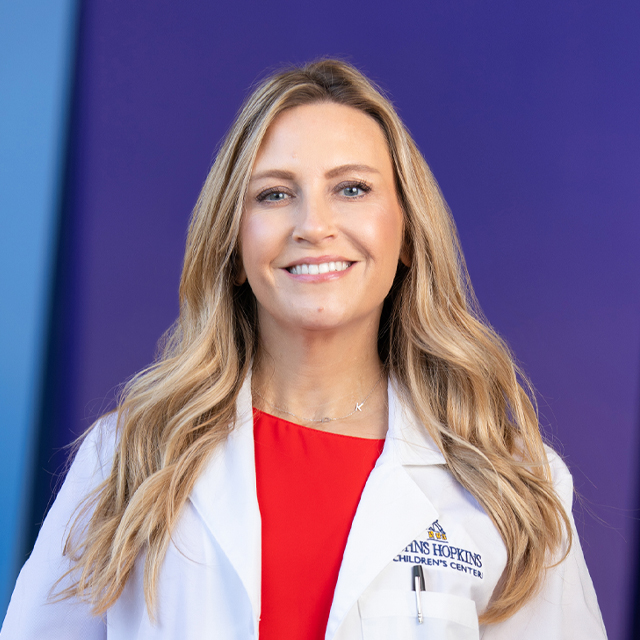The Johns Hopkins University School of Medicine Office of Women in Science and Medicine (OWISM) supports the career and leadership development, as well as the well-being, of women faculty. At a formal dinner in February, 76 women professors who were promoted between mid-2018 and 2022 were recognized and celebrated for their achievements. Since the school of medicine was founded in 1889, there have been 349 women professors (as of February). While this is a major accomplishment to be celebrated, if you compare that to the fact that there are currently more than 485 full-time men professors, you can see that gender inequity still exists.
Currently, women comprise approximately half of the total full-time faculty, including all associate professors and full professors, in the school of medicine. Yet, approximately one-fifth of department directors and one-third of division directors are women. While the number of women professors and women in leadership positions is increasing, women are still disproportionately behind men in terms of professional opportunity.
Dome recently caught up with Jennifer Lee, senior associate dean for the Office of Women in Science and Medicine and professor of anesthesiology/critical care medicine and pediatrics, to discuss the initiatives underway for gender equity in the school of medicine.
What is your role as senior associate dean for the OWISM?
OWISM is within the Office of Faculty. My team and I focus on the advancement of women faculty and pursuing gender equity. Our goals for gender equity include achieving similar proportions of women and men who are promoted to associate and full professor, attain leadership positions, are retained in the school of medicine, earn equal salary for equal work, and achieve other career advancement milestones.
What is the OWISM doing to support women faculty?
We have developed three tiers of career development and leadership programs: The Early Career Women’s Leadership Program, the Mid-Career Women’s Leadership Program and the Mary Elizabeth Garrett Executive Leadership Program. Our early career program is running right now and has more than 50 participants. Over six months, we cover a variety of career development topics that include leading and working within teams, negotiation, resilience, navigating communication differences, defining one’s mission and core values, prioritization, self-promotion, mentorship and well-being. We also have a peer coaching program.
We are tentatively scheduled to start the mid-career program in September 2023 and the executive program in January 2024.
We are also launching a series this month called the Trifecta to discuss pursuing promotion while supporting our well-being and lives outside of work. Women leaders will describe their stories and journeys in navigating the Johns Hopkins promotion process while balancing their personal lives. We’ll also provide tips about the promotions process.
Our new Women’s Professional Advancement Council, under the leadership of Dawn LaPorte, professor of orthopaedic surgery, and Kelly Gebo, professor of medicine and epidemiology, is open to faculty of all genders, and we invite everyone to join us. We have working groups on leadership, promotion and career development, well-being and family support resources. I am really excited to see what ideas and projects the council generates.
Describe the OWISM’s research into gender equity.
As one example, we are exploring how a woman’s personal values align or conflict with her perceptions on holding a leadership position. What influences her decision to pursue and apply for a leadership opportunity?
I know many women — myself included — who decided to not apply for leadership positions because they believed that having the position would interfere with their family obligations. But if we assume that being a successful leader cannot coincide with having a meaningful personal and family life, then we will miss opportunities for tremendous faculty to take important leadership positions.
Some people perceive that being a successful leader cannot happen alongside personal and family well-being. Is this true or false, or does it depend on the situation? Do we really have to choose one or the other when considering leadership versus personal and family life? Do we need to adjust the expectations and support teams inherent to leadership positions to allow people with high non-work obligations, including family care, to succeed as leaders? We need to investigate these questions to make the leadership environment more inclusive and inviting to women who want to pursue leadership pathways. We must also remember that men with family care responsibilities may face similar issues. So, pursuing gender equity and supporting family care really does benefit everyone.
What are some specific challenges for women faculty that the OWISM is trying to address?
Intentionally designing one’s career to prepare for promotion, and then successfully putting together the application packet, is difficult. This has always been tough at Johns Hopkins, and it is only getting harder as we deal with workforce shortages and high pressure to be productive and innovative in clinic, research and education.
We are partnering with leaders in the Office of Faculty, the school of medicine promotion committees, and the Office of Diversity, Inclusion and Health Equity to evaluate various aspects of the promotion process.
Maintaining our personal well-being, and supporting well-being for each of our team members, is extremely difficult right now. In our career development and leadership programs and the upcoming Trifecta series, participants can build networks, share their personal stories, and offer tips and advice. We are reminded that we are not alone in our struggles with work-life integration. We can listen to each other and support each other. When great career opportunities arise, faculty can nominate each other as they learn about each other’s work.
We must collectively examine problems with our workday efficiency and learn to set boundaries when we are at home to minimize the degree that work intrudes on our personal lives. We must also remember that family care responsibilities extend beyond child care: Many of our faculty are in the “sandwich” caregiver generation, meaning they care for children as well as adult relatives.
Additionally, gender bias affects all women and people who are nonbinary. People without caregiving responsibilities also struggle with work-life integration. We must make our programs and networks inclusive.
What tips do you have for people who want to be better allies of women faculty?
Sponsorship! Nominate women faculty for prestigious opportunities and vouch for their work. Nominate women faculty for invited lectures and prestigious awards and societies. Recognize women faculty for their achievements, and spread the word regionally, nationally and internationally so they can receive opportunities to disseminate their work further.
Make sure that women can fully participate when important professional decisions are made. Hold decision-making meetings during work hours when faculty with caregiving responsibilities can be there. When a woman puts forth a great idea, give her credit for it and make sure she is fully recognized for her contribution.
Support women in joining and leading projects that count toward promotion, including being the principal investigator of large studies, first or senior author on publications, and being the lead in disseminating information through lectures, podcasts, webinars and other venues.
There is a historic trend of asking women to do work that is not readily promotable, such as organizing lecture or clinical schedules. Make sure that faculty of all genders share the workload of serving on committees and doing other work that is essential to keep our departments running — but don’t have women do these duties more often than men. Everyone must contribute to the day-to-day tasks at work while still having the time and opportunity to do work that is meaningful to them and that counts toward promotion and career advancement. Such activities include publishing, delivering invited lectures and holding leadership roles at regional, national and international levels.



